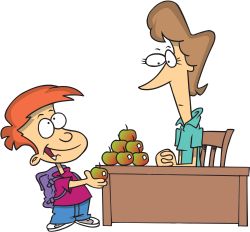English Determiners
English determiners are words that are used to identify nouns. Determiners come before a noun to show which person or thing the noun refers to.
Click Here for Step-by-Step Rules, Stories and Exercises to Practice All English Tenses
English determiners tell us about the noun that comes after them. They tell things such as how much, how many, whose and which one.
Jump to:
Types of Determiners
General Rules for Using English Determiners
Determiners tell whether you are referring to something specific:
Can I borrow your dress?
John is walking the dog.
Is that Bill's blue car?
John is walking the dog.
Is that Bill's blue car?

Or you are referring to something more general:
Do you have any dresses I can borrow?
John is walking a dog.
Do you have some paper?
John is walking a dog.
Do you have some paper?

Why are you wearing my shirt?
She is buying those chairs.
Can you hand me that pencil?
She is buying those chairs.
Can you hand me that pencil?
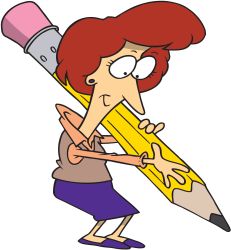
Numbers can also act as determiners.
I will buy twenty-three tickets.
My mom bought ten books.
Tommy has one dog.
My mom bought ten books.
Tommy has one dog.
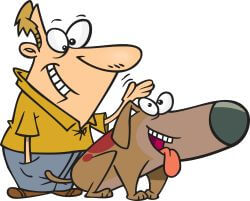
Types of determiners
There are many different types of determiners. Here is a list of the most common types of determiners. Click the links to find out more about each type.Description: The definite article is used to refer to something specific. The indefinite articles are used to refer to something general.
B) Demonstratives (demonstrative pronouns)
Description: Demonstratives are use to point to something specific instead of something general. Demonstratives also tell us where the noun is in relation to the speaker. It is either close or far away.
C) Difference words
Description: Difference words are used when you want to refer to something different, additional, or remaining.
D) Distributives
Description: Distributives are used to refer to how people or things are divided or shared within a group.
E) Numbers (cardinal and ordinal)
Description: Numbers are used to tell an exact amount (one, two, three) or a certain order (first, second, third.)
F) Possessives
Description: Possessives are used to show who or what the noun belongs to.
H) Quantifiers
Description: Quantifiers tell us the number of each noun. They tell us "how much" or "how many."
These are just a few of the quantifiers that can be used as determiners.
I) Question or defining words
Description: Question words ask which thing or person is being referred to by the speaker. Defining words explain which thing or person is being referred to.
Pre-determiners
Description: Pre-determiners are placed before determiners in a sentence. They come before articles or determiners and give even more information about the noun that comes after the determiner.
Here are just a few common pre-determiners that you can use:
-
the (used with singular and plural nouns)
Please hand me the remote.
I can carry the boxes. -
a (used with singular nouns)
Sally has a new car. -
an (used with singular nouns)
I ate an apple.
B) Demonstratives (demonstrative pronouns)
Description: Demonstratives are use to point to something specific instead of something general. Demonstratives also tell us where the noun is in relation to the speaker. It is either close or far away.
-
that (used with singular nouns)
I want that horse. (farther away) -
this (used with singular nouns)
My sister wants this horse. (close) -
these (used with plural nouns)
Do you want to look at these horses? (close) -
those (used with plural nouns)
No. I like those horses. (farther away)
C) Difference words
Description: Difference words are used when you want to refer to something different, additional, or remaining.
-
other (used with singular or plural nouns)
Do you have any other children?
Sam will eat the other piece of cake. -
another (used with singular nouns)
I would like another balloon.
D) Distributives
Description: Distributives are used to refer to how people or things are divided or shared within a group.
-
each
The teacher hands a paper to each child. -
every
The teacher grades every paper after school. -
either
Do you want the blue shirt or the red shirt?
I will be happy with either shirt. -
neither
Nick eats neither pizza nor spaghetti.
E) Numbers (cardinal and ordinal)
Description: Numbers are used to tell an exact amount (one, two, three) or a certain order (first, second, third.)
- one
- twenty
- thirteen
- fifty-two
- first
- last
-
third
.
Examples: - There were twenty children at the party.
- She was the first person to finish.
F) Possessives
Description: Possessives are used to show who or what the noun belongs to.
- my
- your
- his
- her
- its
- our
-
their
Examples: - Have you seen my mother?
- I am her friend.
- We are going to their house for supper.
- Bill's
- America's
- Mr. Smith's
-
Lisa's
Examples: - We flew over Bill's farm.
- Have you been in Mr. Smith's classroom?
- Lisa's car is parked by mine.
H) Quantifiers
Description: Quantifiers tell us the number of each noun. They tell us "how much" or "how many."
These are just a few of the quantifiers that can be used as determiners.
- a little
- a few
- a lot of
- all
- any
- both
- enough
- many
- most
- much
-
some
Examples: - Please hand me a few tissues.
- Both children played in the sandbox.
- Tim is fond of most animals.
- He needs some crayons.
I) Question or defining words
Description: Question words ask which thing or person is being referred to by the speaker. Defining words explain which thing or person is being referred to.
-
which
Which house is yours? (question)
I will show you which house is mine. (defining) -
what
What book did you read? (question) -
whose
Whose dog is that? (question)
That is the man whose dog was in your yard. (defining)
Pre-determiners
Description: Pre-determiners are placed before determiners in a sentence. They come before articles or determiners and give even more information about the noun that comes after the determiner.
Here are just a few common pre-determiners that you can use:
- such
- rather
- twice
- half
- not really
- indeed
- all
- both
- quite
Examples:
pre-determiner determiner
pre-determiner determiner
-
We saved half the cake for her.
-
I bought all my supplies at the store.
-
I babysat for both her children.
- The wedding was such an elaborate celebration!
- The children made quite a fuss over the new teacher.
General rules for using English determiners
1. We don't usually use determiners with singular proper nouns
Determiners are not usually used before singular proper nouns, such as names of countries and people.Examples:
- Incorrect: This summer I will visit the America.
-
Correct: This summer I will visit America.
- Incorrect: The Mrs. Smith is my teacher.
- Correct: Mrs. Smith is my teacher.
These words can use a determiner.
- The Pacific Ocean (Atlantic Ocean, etc.)
- The United States of America
2. You must always use a determiner with a singular countable noun
Singular countable nouns need a determiner.
Examples:
- Incorrect: Have you seen dog?
-
Correct: Have you seen my dog?
- Incorrect: You can borrow pencil from teacher.
-
Correct: You can borrow a pencil from the teacher.
- Incorrect: There was envelope in mailbox.
- Correct: There was one envelope in Bob's mailbox.
3. You do not always use determiners with plural countable nouns
Plural countable nouns do not always use a determiner.
You can use these types of determiners before plural countable nouns:
- The article "the"
- possessive pronouns
- possessive proper nouns
- numbers
- quantifiers
- question words
- demonstratives (these and those)
Examples with no determiner:
-
Apples are my favorite fruit.
-
Flowers are growing in our garden.
-
I like dogs and cats.
- The playground is full of kids.
Examples with determiners:
-
Their books are on the table.
-
I shut Nick's dogs in the garage.
-
Tom has twelve children in his class.
-
These books need to be put on a shelf.
- Which shoes did he buy?
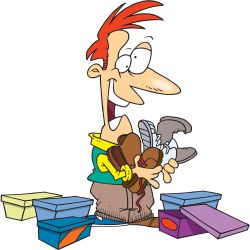
4. Determiners are sometimes optional with uncountable nouns
Determiners are not always required before uncountable nouns.
Examples:
-
I put pepper in the soup.
-
I put some pepper in the soup.
-
Is the water cold?
-
Water is good for your body.
- Your happiness is important to me.
- Babies bring happiness!
5. Use the indefinite articles "a" and "an" as determiners when referring to non-specific singular nouns
A) Use "a" before a noun beginning with a consonant sound
Examples:
-
I need a pencil.
-
Did you see a giraffe at the zoo?
- She bought a car.
B) Use "an" before a noun beginning with a vowel sound
Examples:
-
Did you see an elephant at the zoo?
-
Please hand me an eraser.
- Tommy has an apple in his lunchbox.
6. Use the definite article "the" as a determiner when referring to a specific noun
Examples:
-
Did you see the cats in the window?
-
I wrecked the car.
-
She is applying for the job.
7. Sometimes one or more adjectives are placed between the determiner and the noun to make the noun even more specific
Examples:determiner adjective(s) noun
- Can I borrow your red dress?
- Mr. Jones is my favorite teacher.
- She owns a big, mean dog.
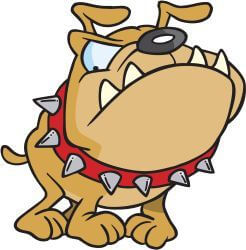
These were the rules of English Determiners. Now that you know them, it is time to practice! Get our ESL Books.
Get Updates, Special Offers, and English Resources
Download your FREE GIFT (the first two chapters of
English Short Stories Book and Workbook)
as soon as you join!

By submitting your email, you consent to receiving updates and newsletters from us and to the sharing of your personal data with third parties for the purposes of sending you communications. We will not spam you. You can unsubscribe at any time. For more information, please see our privacy policy.

